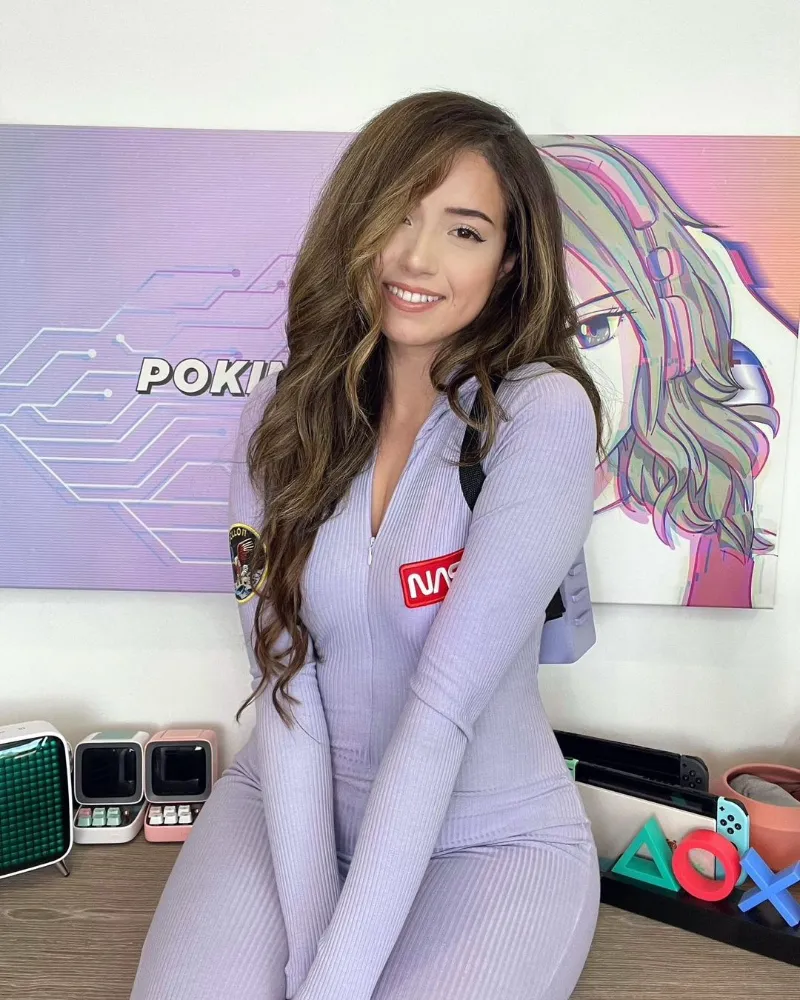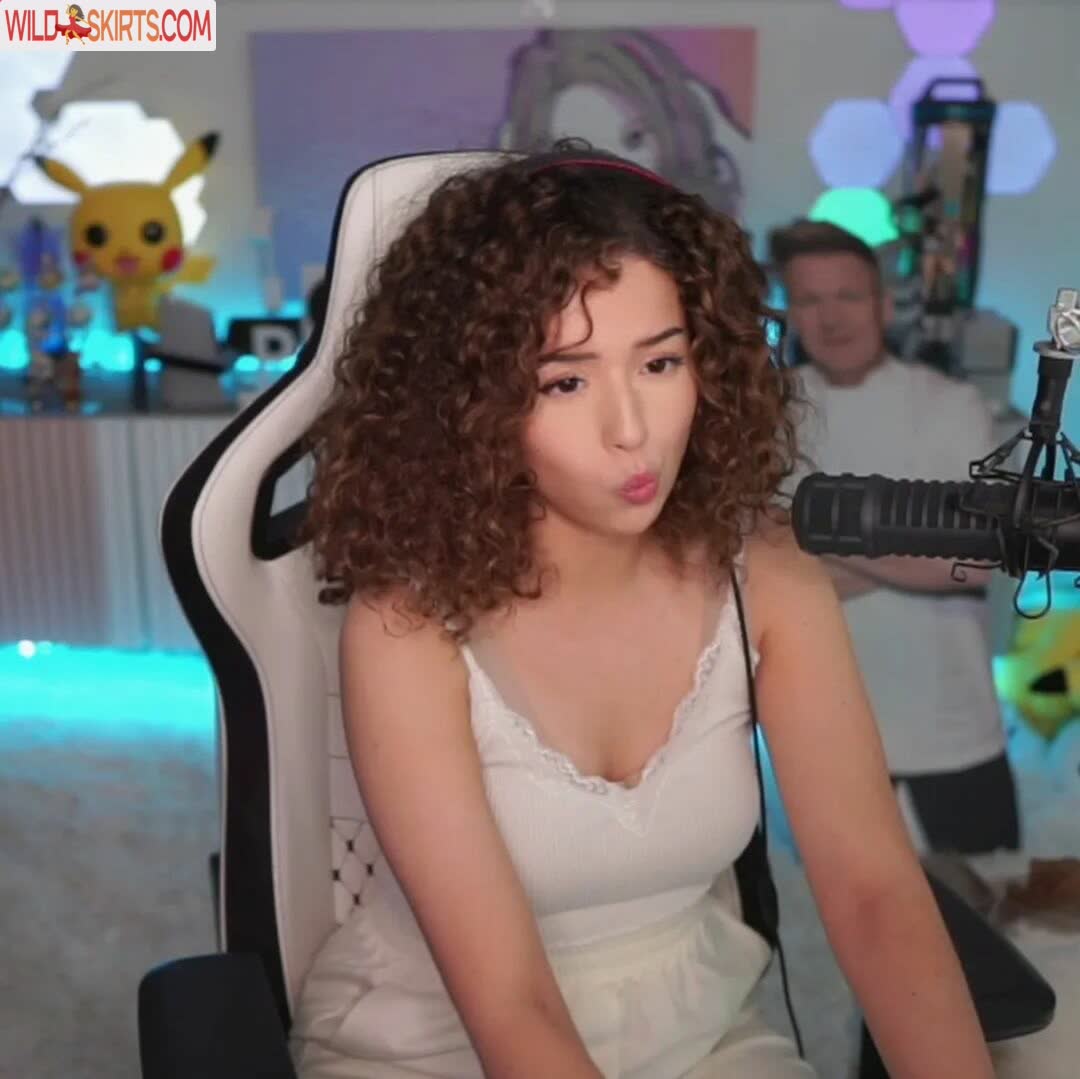Understanding Online Privacy And The 'Pokimane Nudes' Search Phenomenon
The internet, you know, it's a vast place, full of information and connections, but it also sparks a lot of curiosity, doesn't it? Sometimes, this curiosity leads people to search for things that might be sensitive, or even harmful. A search term like "Pokimane nudes," for example, pops up quite often, and it really highlights a bigger conversation we need to have about online privacy and digital respect. It's just a little bit of a reminder that what we look for online has consequences, both for us and for others.
There's a certain pull, isn't there, to what's popular or what might be considered scandalous? That, is that, why such terms gain traction. However, behind every search query, especially ones involving a public figure, there are very real people and very real feelings. It's not just about finding something; it's about what that search implies and the kind of online environment it helps create. So, we're talking about more than just a phrase here.
This article, you see, aims to explore the broader picture surrounding these kinds of searches. We'll be looking at why online privacy matters so much, what consent really means in the digital space, and the serious dangers of non-consensual imagery. It's about helping us all understand our role in building a safer, more respectful internet for everyone, honestly, and that includes public figures who are just trying to do their work.
- Wpcnt.linkmaz
- Discover The World Of Diva Flawless Xxx Video A Comprehensive Guide.linkmaz
- Bollyflixcom Your Ultimate Destination For Bollywood Entertainment.linkmaz
- Gungun Gupta Viral Sex Video.linkmaz
- Odia Viral Mms Unpacking The Phenomenon And Its Implications.linkmaz
Table of Contents
- Who is Pokimane?
- The Digital Footprint and Online Searches
- Understanding Online Privacy and Consent
- The Impact of Non-Consensual Imagery
- Protecting Yourself and Others Online
- Reporting Harmful Content
- Frequently Asked Questions
Who is Pokimane?
Pokimane, whose real name is Imane Anys, is a very popular figure in the online content creation world, you know. She's widely recognized as a streamer and YouTuber, primarily known for her gaming content, especially on platforms like Twitch. She's been around for quite some time, building a really large audience through her engaging personality and diverse content, which includes gaming, lifestyle vlogs, and just chatting sessions, so she's pretty well-known.
She's a prominent voice in the streaming community, often speaking about online safety, harassment, and the challenges faced by content creators. Her career has seen her participate in various collaborations and events, establishing her as one of the most followed female streamers globally. It's kind of a big deal, her presence online, and she's had a significant impact on how people see online entertainment.
Personal Details and Public Profile
Here's a quick look at some general public information about Imane Anys, or Pokimane, just to give you a bit of context about her public persona. This information is widely available and relates to her professional career and public identity, not anything private, you know. It's about her role as a content creator.
- Nepali Kanda Videos.linkmaz
- The Fan Bus Tv Leaks.linkmaz
- Condo Games.linkmaz
- Cameron Herrin Now.linkmaz
- Scarswonderland Onlyfans Leak.linkmaz
| Detail | Information |
|---|---|
| Full Name | Imane Anys |
| Known As | Pokimane |
| Nationality | Moroccan-Canadian |
| Primary Platforms | Twitch, YouTube |
| Content Focus | Gaming, Vlogs, Just Chatting, Lifestyle |
| Public Persona | Content Creator, Streamer, Online Personality |
The Digital Footprint and Online Searches
Every single thing we do online, you know, it leaves a trace. That's our digital footprint, and it's something that, honestly, is growing bigger for everyone all the time. When people type in search queries like "Pokimane nudes," it's not just a private act. It becomes part of a larger pattern of online behavior, and that pattern can have real effects on individuals and the broader internet environment. It's a bit like leaving tracks in the sand, isn't it?
These kinds of searches, they often stem from curiosity, or perhaps a desire for sensational content. However, the websites that pop up for such queries can be, frankly, quite risky. They might contain malware, or they could be trying to trick you into clicking on things you shouldn't. You know, it's just not a safe space to be. Furthermore, searching for and engaging with such content, even if it's just out of curiosity, can inadvertently support the spread of harmful or non-consensual material, which is a pretty serious matter.
It's important to think about the source of the information you find online, too it's almost. Is it reliable? Is it ethical? When you search for content that might be private or non-consensual, you're essentially participating in a system that can exploit individuals. This really highlights why understanding the consequences of our online actions is so important, not just for ourselves, but for everyone else too. We're all connected in this digital space, aren't we?
Understanding Online Privacy and Consent
Online privacy is a really big deal, you know, and it's something we should all pay attention to. It means having control over your personal information and how it's used and shared on the internet. For public figures, it's a bit more complex, because their work involves being visible, but that doesn't mean they give up all their rights to privacy. There's a clear line, and it's important for everyone to recognize it.
Consent, honestly, is the absolute core of online privacy. It means clearly agreeing to something, and that agreement has to be freely given, specific, informed, and unambiguous. When it comes to images or personal information, consent means that a person has explicitly said it's okay for something to be shared, and they know exactly what's being shared and with whom. Without that clear permission, sharing someone's private images, especially those of a sensitive nature, is a serious violation of their rights and, quite often, it's against the law.
This applies to everyone, you know, not just celebrities or public figures. Every person has a right to their own image and their own private life. The idea that someone's public presence somehow grants permission for their private moments to be exposed is just, well, it's not right. It's a fundamental misunderstanding of personal boundaries and respect, and we really need to get better at understanding this as a society. It's about treating others online with the same respect you'd expect offline, basically.
The Impact of Non-Consensual Imagery
The consequences of non-consensual imagery are, frankly, devastating for the people involved. It's not just a fleeting moment on the internet; it has long-lasting, very real effects on a person's life. Imagine having your most private moments exposed without your permission; the emotional toll alone can be immense. People affected often experience deep distress, anxiety, and feelings of betrayal, you know, and it's a very heavy burden to carry.
Beyond the personal emotional impact, there's also the damage to a person's reputation and career. For public figures like streamers or content creators, whose livelihood depends on their public image, the spread of non-consensual explicit content can be absolutely ruinous. It can lead to harassment, bullying, and a loss of opportunities, which is just incredibly unfair. This kind of content, it's not harmless fun; it's a form of abuse, actually, and it's something we should all be against.
Moreover, the creation and distribution of non-consensual explicit imagery can have serious legal repercussions for those involved in its creation or widespread sharing. Laws are getting stronger around the world to protect individuals from this kind of harm, and for good reason. It's a crime, in many places, to share private images without consent, and people can face severe penalties. So, it's not just an ethical issue; there are legal boundaries, too, which is very important to remember.
Protecting Yourself and Others Online
Being safe online, you know, it's a shared responsibility, and there are lots of things we can all do to help. One of the simplest steps is to think critically about the content you encounter. If something seems too shocking or too good to be true, it probably is. Always question the source of information, especially when it involves private details about someone else. It's like, just a little bit of healthy skepticism can go a long way.
Another really important thing is to respect people's digital boundaries. Just because someone is a public figure doesn't mean their entire life is fair game for public consumption. Understand that everyone, no matter how famous, has a right to privacy and dignity. Don't share content that you suspect might be private or non-consensual, and certainly don't seek it out. It's pretty basic, but it makes a huge difference, honestly.
Also, make sure your own online security is strong. Use strong, unique passwords for all your accounts, and enable two-factor authentication whenever possible. Be cautious about what you click on, and regularly update your software. These steps help protect you from malicious actors who might try to exploit your curiosity or compromise your devices. It's about building a bit of a fortress around your own digital life, you know, and that helps keep everyone safer. Learn more about online safety on our site.
Reporting Harmful Content
If you ever come across content that looks like non-consensual explicit imagery, or anything that violates someone's privacy, you know, it's really important to know what to do. Most online platforms, whether it's social media sites, video platforms, or search engines, have clear mechanisms for reporting such material. These reporting tools are there for a reason, and using them helps protect people who are being harmed. It's a pretty straightforward way to make a positive impact.
When you report something, try to provide as much detail as you can without lingering on the harmful content itself. This usually includes the URL of the content, the platform it's on, and why you believe it violates their policies. The more information you give, the easier it is for the platform to review and take action. It's like giving them all the pieces of the puzzle, basically, so they can solve it quickly.
Remember, reporting is an act of digital citizenship. By taking action, you're not just helping the individual who might be affected; you're contributing to a safer, more ethical online environment for everyone. It's a way of saying that this kind of content is not okay, and we won't stand for it. So, if you see something, say something, you know? It really does matter. You can also find more resources on digital ethics and reporting guidelines by visiting reputable organizations that focus on online safety and privacy, like the Electronic Frontier Foundation.
Frequently Asked Questions
What are the dangers of searching for sensitive content online?
Searching for sensitive content, like "Pokimane nudes," can expose you to a few risks, honestly. You might stumble upon websites that contain malware or phishing scams, which could compromise your device or personal information. Also, you could inadvertently support the distribution of non-consensual content, which is harmful to the individuals involved and illegal in many places. It's just not a very safe path to go down, you know.
How can I protect my own privacy online?
Protecting your online privacy involves a few simple steps, really. Use strong, unique passwords for all your accounts, and turn on two-factor authentication whenever you can. Be careful about what personal information you share online, and regularly check your privacy settings on social media and other platforms. It's also a good idea to be cautious about clicking on suspicious links or downloading files from unknown sources. Basically, be smart about your digital presence, and it helps a lot.
What should I do if I find non-consensual imagery online?
If you come across non-consensual imagery, the best thing to do is report it immediately to the platform where you found it. Most websites and social media services have clear reporting mechanisms for content that violates their terms of service, especially concerning privacy and explicit material. Don't share the content yourself, and try not to dwell on it. Just report it and move on, you know, because that's the most responsible thing to do. You can also learn more about how to protect yourself and others by visiting this page .
- La Varita De Emiliano Video The Magic Behind The Scenes.linkmaz
- Hdhub4u 2025 Bollywood Movies Your Ultimate Guide To Streaming And Downloading.linkmaz
- Owen Wilsons Nose The Story Behind The Iconic Feature.linkmaz
- Jason Luv And Eva Elfie.linkmaz
- Divaflawless Xxx.linkmaz

53 Sexy Photos of Streamer Pokimane You Will Ever See - Utah Pulse

Pokimane / pokimanelol / pokinaneonlyfan nude OnlyFans, Instagram

Pokimane / pokimanelol / pokinaneonlyfan nude OnlyFans, Instagram